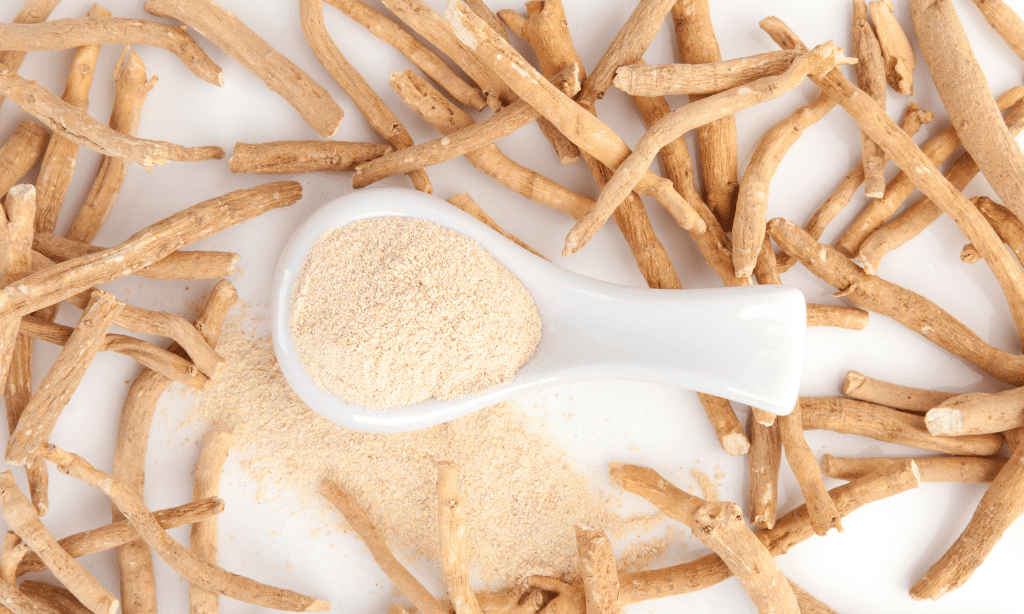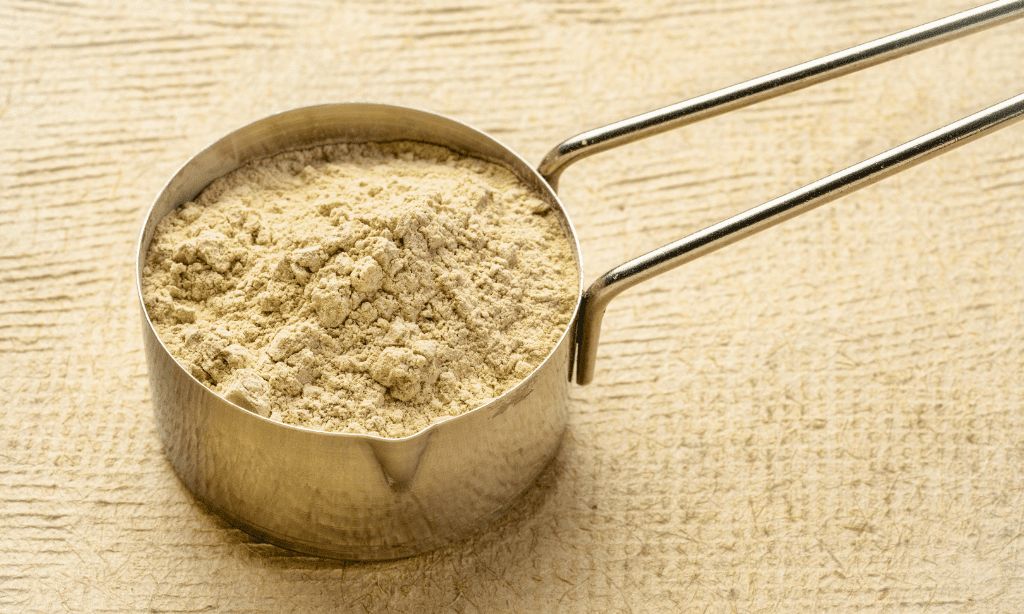Are you experiencing the effects of stress and overwhelm? Is your hormonal balance causing fatigue and a constant sense of disarray in your life? If you find yourself nodding in agreement, then ashwagandha might just hold the solution you’ve been seeking. Ashwagandha, an ancient herb rooted in Ayurvedic medicine, is renowned for its potential to restore balance within the body. In this article, we delve into the Ashwagandha Benefits for Women,
We’ll give you insights into its scientifically supported advantages, along with precautions regarding potential side effects. Join us on this exploration of the myriad ways ashwagandha can empower women’s well-being.
Exploring Ashwagandha Benefits for Women
Here we’re going to discuss the main point of today’s blog. So, read on.
Supporting Emotional Wellness
With its historical roots in Ayurvedic practices, ashwagandha emerges as a potent remedy to bolster emotional wellness and overall mental health. This natural solution effectively reduces stress, anxiety, and even depression.
Scientific studies underline the positive impact of ashwagandha on neurotransmitters such as serotonin, dopamine, and GABA, which govern mood regulation. This suggests its potential to induce a sense of calm and enhance emotional well-being.
Promoting a Healthy Body Composition
Ashwagandha, a powerful adaptogenic herb, offers multifaceted benefits for women’s health. Among its many attributes, it aids in maintaining a healthy body composition.
Research highlights ashwagandha’s role in weight management and fat reduction. In an eight-week study involving 62 subjects, those who incorporated ashwagandha experienced significant fat mass loss compared to the control group.
Furthermore, ashwagandha’s potential to enhance muscle strength and promoting muscular growth provides an added advantage. Its influence on hormonal equilibrium also comes into play, particularly in supporting weight regulation.
Supporting Thyroid Function
Ashwagandha’s potential to regulate underactive thyroid conditions is gaining attention. By elevating hormone levels and alleviating fatigue and joint discomfort, ashwagandha may contribute to improved thyroid function.
Research indicates that ashwagandha might prove beneficial for individuals with hypothyroidism, potentially enhancing thyroid activity. However, caution is advised, as interactions with other thyroid medications could occur.
Maintaining Hormonal Balance During Aging
Ashwagandha, deeply rooted in Ayurvedic principles, also addresses hormonal imbalances. It mitigates menopausal symptoms, such as hot flashes and bone loss, while promoting healthy hormone levels during the aging process.
By enhancing sleep quality and bolstering stress resilience, ashwagandha contributes to balanced hormones. Moreover, it may counteract stress-related weight gain associated with estrogen reduction during menopause.
Offering Relaxation and Calming Benefits
Ashwagandha’s reputation extends to its capacity to induce relaxation and emotional well-being. The herb’s unique mechanism involves cortisol regulation, a hormone that impacts alertness and anxiety levels.
With its potent antioxidant properties, ashwagandha modulates cortisol levels, reducing inflammation resulting from prolonged stress. This, in turn, enhances cognitive performance and supports thyroid function.
Supporting Cognitive Function
Ashwagandha has been revered for centuries for its cognitive benefits. Its components facilitate relaxation and combat inflammation, thereby improving cognitive function, memory, and focus.
Rich in compounds called withanolides, ashwagandha effectively soothes nerves, strengthens nerve transmissions, and boosts cognitive abilities. It also aids in elevating dopamine and regulating serotonin levels, essential for motivation, mood, and cognition.
Enhancing Skin and Hair Health
Ashwagandha’s holistic health benefits extend to skin and hair. Recognized as an Ayurvedic tonic, it rejuvenates overall well-being, offering particular advantages to women.
The herb’s ability to minimize oxidative stress in the scalp fosters hair follicle health, thanks to its antioxidant content—vitamin C, selenium, zinc, copper, and magnesium. These nutrients encourage tissue regeneration and hair thickening, promoting a vibrant appearance.
Easing Stress and Anxiety
With its historical legacy as an ancient herb, ashwagandha has substantiated its efficacy in reducing stress and anxiety. It primarily targets cortisol and DHEA hormones, impacting our response to stress.
Clinical research suggests ashwagandha significantly lowers cortisol levels, diminishing overall stress sensitivity. This calming effect extends to the nervous system, inducing relaxation and enhancing physical and mental well-being.
Combating Inflammation
Ashwagandha, or Indian ginseng, boasts potent anti-inflammatory properties attributed to its chemical compounds—primarily withanolides. These compounds exhibit the ability to mitigate swelling and inflammation.
The herb’s antioxidant activity contributes to liver health by reducing oxidative stress and cell damage caused by free radicals. Additionally, studies reveal ashwagandha’s potential in alleviating symptoms associated with chronic inflammations, such as arthritis and joint discomfort.
Boosting Memory and Focus
Ashwagandha’s positive impact on memory and focus is particularly pronounced among women. Research from the Indian Journal of Clinical Psychology highlights its efficacy in enhancing attention, verbal learning, recall, and cognitive processing speed.
Another study observed significant cognitive function improvement among women who supplemented with ashwagandha root extract for 12 weeks. The correlation between stress reduction and cognitive enhancement underscores its mechanism.
Ashwagandha and Women’s Health Issues

Here we’ll show some other benefits of Ashwagandha for women health.
Addressing Cancer Prevention and Treatment
The potential of ashwagandha in combatting cancer is gaining attention. Recent studies indicate its selective ability to target cancer cells while sparing healthy ones, offering a possible alternative treatment method for various cancer types.
Furthermore, ashwagandha’s anti-inflammatory properties may reduce factors contributing to cancer development, such as inflammation associated with breast, lung, colon, and ovarian cancers. Its immune-boosting effects could also play a role in guarding against certain malignancies.
Balancing the Menstrual Cycle
Leveraging its adaptogenic nature, ashwagandha plays a role in enhancing female reproductive health. It works to harmonize hormone balance and exhibits potential in regulating the menstrual cycle.
Stabilizing estrogen levels assists in rectifying menstrual irregularities, including easing period cramps and pain through its anti-inflammatory attributes. For those with polycystic ovary syndrome (PCOS), ashwagandha’s hormone-balancing potential extends to addressing irregular cycles and aiding fertility.
Boosting Sexual Well-being
Ashwagandha’s historical usage in treating sexual dysfunction extends to women. Studies indicate its potential to alleviate stress, increase androgens, and elevate testosterone levels, which might enhance female sexual health.
Acting as an aphrodisiac, ashwagandha’s impact on libido and performance is noteworthy. While scientific research on sexual function effects is evolving, its role in reducing stress, regulating cortisol, and supporting hormonal equilibrium aligns with its potential benefits for gynecological issues.
Contributing to Heart Health
Ashwagandha’s impact on heart health stems from its capacity to regulate blood sugar and lipid levels. Its anti-inflammatory attributes are advantageous for women with existing heart conditions, where inflammation contributes to coronary artery disease.
Moreover, its anxiety and stress-reducing properties positively influence cardiovascular health. Addressing risk factors like hypertension and atherosclerosis, ashwagandha complements overall heart health management.
Combatting Vaginal Infections
Among the diverse benefits, ashwagandha’s antimicrobial prowess stands out. By inhibiting microbial growth, it proves effective against bacterial vaginosis and gynecological issues like pelvic inflammatory disease.
Combining anti-inflammatory benefits, ashwagandha eases discomfort and supports the female reproductive system. Its immune-boosting effects contribute to preventing future health concerns, providing a comprehensive approach to feminine well-being.
Maintaining Blood Sugar Levels
Ashwagandha’s role in blood sugar regulation is evident. Animal and human studies demonstrate its efficacy in lowering fasting and post-meal glucose levels.
By improving insulin sensitivity, insulin release, and pancreatic function, ashwagandha aids in stable blood sugar management. Additionally, its potential to mitigate oxidative stress complements its role in diabetes control.
Enhancing Sleep Quality
Promoting restful sleep is another facet of Ashwagandha’s benefits. Root extract supplementation showcases improved sleep duration, faster onset, and enhanced quality.
Endogenous melatonin release induction, nervous system relaxation, anxiety reduction, and serotonin elevation combine to improve sleep patterns. This holistic approach resonates with its potential in managing insomnia and sleep disorders.
Facilitating Weight Loss
Ashwagandha aids weight loss by combating stress-related weight gain through cortisol regulation. Its impact on physical performance and testosterone production further supports weight management.
Part of Ayurvedic health strategies, ashwagandha enhances energy and metabolism, aligning with weight loss objectives.
Offering Relief for Vitiligo
Vitiligo sufferers may find solace in ashwagandha. Research suggests therapeutic dosages can diminish white patches, possibly due to heightened antioxidant capacity and anti-inflammatory effects.
Enhancing pigmentation and reducing inflammation, ashwagandha showcases potential as a supplement for vitiligo management.
Supporting Female Fertility
Ashwagandha emerges as a supporter of reproductive health, influencing female fertility positively. Iron-rich composition aids infertility management, while hormone regulation enhances ovulation and equilibrium.
The herb’s potential to bolster sperm quality aids couples facing fertility hurdles. With a focus on emotional stability and hormone balance, Ashwagandha’s influence extends to managing fertility-related stress.
Read Also: Foods that can control blood pressure
Methods of Consuming Ashwagandha

Ashwagandha offers diverse consumption options, such as tablets, capsules, powder, milkshakes, tea, and integration into recipes like Shrikhand.
Ashwagandha Tablets or Capsules
For stress relief, ashwagandha tablets or capsules are popular. Studies highlight their potential for addressing mild anxiety, fatigue, insomnia, and other conditions. Ashwagandha’s active components harmonize hormones and induce relaxation. Caution is advised to avoid side effects like drowsiness or stomach discomfort. Taking with meals improves absorption and effectiveness, yielding mood enhancement, cognitive improvement, and potential fertility benefits over time.
Ashwagandha Powder
Known as Indian ginseng, ashwagandha’s withanolides offer anti-inflammatory and antioxidant advantages. It eases pain, and anxiety, and boosts energy, fertility, and sleep. Ashwagandha powder suits milkshakes, teas, and capsules, promoting balance within the body, physical vitality, and mental wellness.
Ashwagandha Milkshake
Creating an Ashwagandha milkshake is effortless and nutritious. Combining 1 teaspoon of Ashwagandha powder with non-dairy milk or plant-based yogurt produces a creamy, healthful beverage. Optional ingredients like banana, honey, or maple syrup enhance flavor and benefits. These milkshakes simplify daily ashwagandha consumption, offering stress reduction and energy boosts.
Ashwagandha Tea
Ashwagandha tea is a time-tested remedy fostering physical and mental health. Root-derived, withanolide-rich, and adaptogenic, it aids stress management, blood sugar, muscle strength, anxiety, energy, and sexual function in women. Potential heart, skin, focus, memory, cognitive benefits, and weight loss align with ashwagandha tea. Moderate use mitigates side effects like drowsiness or nausea.
Ashwagandha in Recipes like Shrikhand
Incorporating ashwagandha into Ayurvedic recipes like Shrikhand elevates wellness. Shrikhand, a yogurt-based dessert, gains health boosts from ashwagandha. Emotional well-being, body composition, hormonal balance, tension relief, and brain function improvements accompany its inclusion.
Potential Ashwagandha Side Effects for Women
Now we’ll learn about some potential side effects of Ashwagandha
Drowsiness
Ashwagandha can induce drowsiness, particularly when combined with sleep-inducing medications. While aiding sleep, users must exercise caution to prevent excessive lethargy.
Nausea and Upset Stomach
Some women may experience nausea and upset stomach with ashwagandha use, especially at higher doses. Gradual tolerance buildup and milk consumption may alleviate these effects.
Potential Risk of Miscarriage
Ashwagandha’s compounds increase miscarriage, premature birth, and uterine contractions risks. Pregnant women should avoid ashwagandha due to potential complications and effects on fetal development.
How Ashwagandha Balances Female Hormones
Ashwagandha’s adaptogenic nature aids hormone balance in women. By mitigating cortisol and maintaining thyroid hormone levels, it promotes equilibrium and supports overall well-being.
Ashwagandha’s Impact on Menstrual Cycles
Though not fully understood, ashwagandha potentially positively influences menstrual cycles. Its hormone-balancing effects may normalize cycle length and reduce pain, enhancing emotional well-being during menstruation.
Ashwagandha’s Role in PCOS Management
Ashwagandha effectively supports women with PCOS, reducing stress, insulin resistance, and thyroid imbalances. Its adaptogenic properties aid hormone balance, fertility, and symptom alleviation.
Ashwagandha’s Influence on Estrogen Levels
Studies suggest ashwagandha can increase estrogen levels, beneficial during menopause. Its potential in modulating FSH and LH levels supports menstrual regularity.
Frequently Asked Questions (FAQs)
Common inquiries about ashwagandha’s impact on women’s health are addressed. These queries cover ashwagandha’s nature, benefits, and safe consumption.
What is Ashwagandha?
Ashwagandha stands as an adaptogenic herb steeped in traditional Ayurvedic medicine for centuries. Its reputation lies in its ability to mitigate stress, elevate energy levels, and foster holistic well-being.
What Advantages Does Ashwagandha Offer Women?
For women, Ashwagandha extends an array of potential benefits encompassing anxiety and depression reduction, harmonization of hormones, enhancement of fertility, regulation of menstrual cycles, reinforcement of the immune system, and elevation of sleep quality.
How Should Ashwagandha Be Consumed?
To harness its advantages optimally, Ashwagandha is best consumed in capsule or powder forms on a consistent basis. Adhering to recommended dosage instructions stipulated by your healthcare provider guarantees the utmost safety and effectiveness of this supplement.
Conclusion
Ashwagandha, an Ayurvedic gem, holds multifaceted benefits for women’s health. Emotional well-being, body balance, hormone regulation, and antioxidant support are among its remarkable contributions. Understanding potential side effects, consulting professionals, and adopting gradual use ensures safe and effective integration of ashwagandha into women’s wellness routines.














![Technical Aspects of 844 Area Code in 2024 [Detail Guide] 844 Area Code](https://articleify.com/wp-content/uploads/2024/01/844-Area-Code-150x150.jpg)














